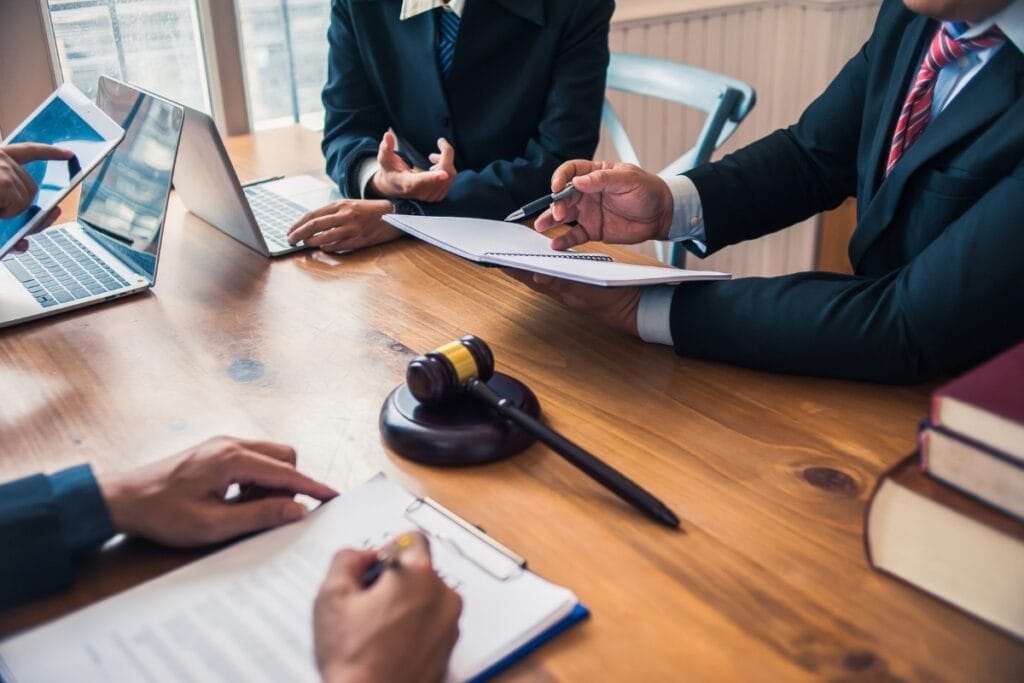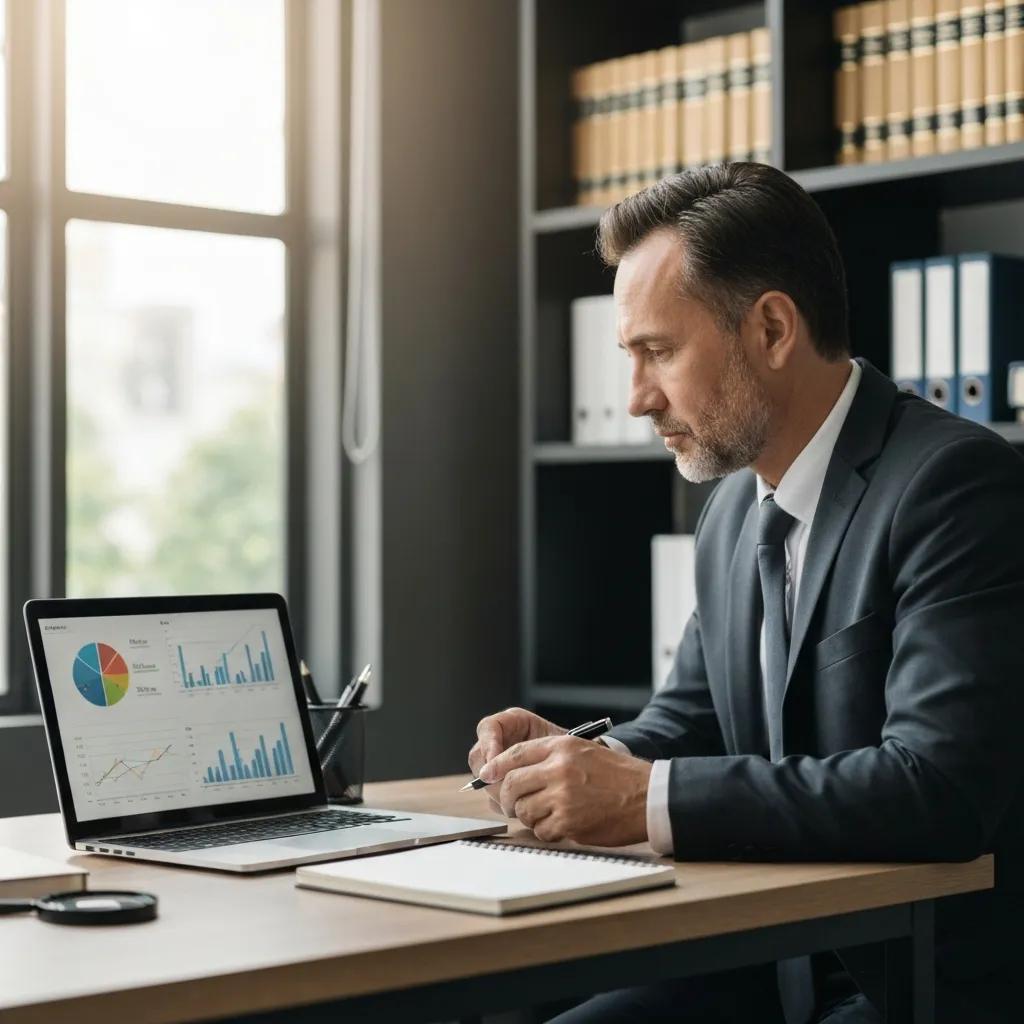Corporate investigations play a critical role in protecting businesses from internal and external threats like fraud, theft, and misconduct. As organizations grow, so does the complexity of their operations, making it easier for dishonest behavior to slip through unnoticed. Whether it’s embezzlement, data breaches, or asset misappropriation, even small-scale fraud can have major financial and reputational consequences. That’s where corporate investigations come in. These thorough, discreet processes help uncover wrongdoing, strengthen internal controls, and safeguard company assets. In this guide, we’ll explore how businesses can effectively detect and prevent fraud through strategic investigative practices.
Inside Corporate Investigations: How Companies Protect Themselves
What Are Corporate Investigations and Why Are They Essential for Fraud Detection?

Corporate investigations are structured processes that help businesses uncover, understand, and respond to internal misconduct. These investigations often focus on detecting fraud, theft, or other violations of company policies. When done properly, they offer organizations a way to uncover problems early, respond appropriately, and put systems in place to prevent future issues.
Fraud can quietly cost companies millions if left unchecked. Whether it’s a financial discrepancy, a suspicious vendor payment, or a whistleblower report, corporate investigations provide a methodical way to get to the root of the issue. The goal isn’t only to identify what went wrong, but also to understand how it happened and take steps to reduce future risk.
How Do Corporate Investigations Identify Fraud and Theft?
Most investigations begin when something seems off—a drop in profits without explanation, accounting anomalies, or reports from concerned employees. Investigators then use a combination of interviews, data analysis, and document reviews to uncover the facts.
Forensic accounting is a key component of these efforts. It involves analyzing financial records in detail to detect unusual transactions, hidden payments, or misreported expenses. Investigators may also cross-check internal records with external databases or vendor information to spot inconsistencies. When necessary, surveillance or digital forensics might be used to examine access logs, emails, or other digital activity that could point to unauthorized behavior.
While the tools used in investigations can vary, the common thread is attention to detail and a clear understanding of what normal operations should look like. Deviations from those norms often provide the first clue that something isn’t right.
What Types of Fraud and Theft Do Businesses Commonly Face?
Fraud can take many forms, depending on the nature of the business and the systems in place. One of the most common types is embezzlement, where an employee misappropriates funds for personal use. This could involve anything from falsifying invoices to manipulating payroll records.
Procurement fraud is another common concern. It might involve collusion between employees and vendors, inflated contract pricing, or fake billing. Companies also face risks from cyber theft, including phishing attacks, data breaches, and ransomware incidents that target sensitive customer or company information. Even routine activities like travel or purchasing can be manipulated. For example, expense reports may be padded with personal charges or repeated claims. Identifying these patterns is key to preventing them from escalating.
How Does Corporate Investigation Support Legal and Regulatory Compliance?
Beyond detecting wrongdoing, corporate investigations also play an important role in compliance. In many industries, regulations require companies to act when there are signs of fraud or ethical misconduct. Conducting a thorough, well-documented investigation shows that a business is taking its obligations seriously. The evidence gathered during an investigation may be used in disciplinary actions or legal proceedings.
It’s important that these processes are handled carefully and follow both internal policies and external legal standards. Mishandling an investigation can result in legal liability or damage to the company’s reputation. A good investigation doesn’t stop at identifying a problem. It should lead to clear recommendations, such as tightening internal controls, improving oversight, or updating training programs. These actions help reduce the chance of similar issues recurring and demonstrate to stakeholders—employees, regulators, or investors—that the company is committed to ethical and transparent business practices.
Which Methods and Techniques Are Used to Detect Fraud in Businesses?

Businesses use a range of methods to detect fraud, combining technology, financial analysis, and investigative techniques. Fraud can take many forms, including theft, financial misreporting, and data breaches. Because of this variety, no single approach is enough. A layered strategy helps organizations uncover suspicious behavior early and take action before losses escalate.
Fraud detection is not just about spotting obvious red flags. It also involves looking at trends over time, comparing patterns, and analyzing behavior that may not immediately appear suspicious. The goal is to catch inconsistencies, ask the right questions, and prevent issues from becoming larger problems.
How Does Forensic Accounting Help Uncover Financial Fraud?
Forensic accounting is a focused area of financial investigation. Accountants trained in this specialty examine financial records to spot irregularities that may point to fraud. This could include unusual cash withdrawals, duplicate invoices, or adjustments made to financial statements without proper documentation.
Unlike routine bookkeeping or standard audits, forensic accounting digs deeper. These professionals often reconstruct financial data from incomplete records to track where money went and whether it was used legitimately. Their work is often used in court cases or internal disciplinary actions, especially when large sums are involved or when fraud has gone undetected for long periods.
What makes forensic accounting effective is its attention to detail. It looks beyond the numbers on a spreadsheet and asks how those numbers got there. If something doesn’t make sense or aligns poorly with the company’s normal financial behavior, that’s where an investigation begins.
What Role Does Data Analytics Play in Fraud Detection?
Data analytics has become a powerful tool in identifying fraud. Businesses now have access to vast amounts of data, and analytics software can process this information quickly, looking for patterns that humans might miss. For example, a series of small, repeated transactions that fall just below approval thresholds may be signs of someone trying to avoid detection.
Analysts use models and algorithms to look for anomalies in accounting systems, payroll, purchasing, and other financial functions. They also use trend analysis to detect inconsistencies over time. When a department’s expenses suddenly increase without explanation, or when vendors are paid outside normal cycles, it could signal a problem.
This kind of analysis allows companies to act quickly. Rather than waiting for a quarterly review or an annual audit, businesses can flag and investigate issues in real time, reducing the chance of sustained losses.
How Are Background Checks and Due Diligence Conducted to Prevent Fraud?
Preventing fraud starts with hiring and partnering with trustworthy people. Background checks and due diligence are essential steps in making sure that employees, vendors, and business partners don’t pose unnecessary risks.
For employees, this might include checking criminal records, verifying past employment, or confirming education credentials. For vendors and partners, companies may look into financial histories, litigation records, or public reputation. These checks help filter out individuals or organizations with histories of fraud or misconduct. Doing proper due diligence doesn’t eliminate risk, but it helps reduce exposure by identifying red flags before agreements are made or responsibilities are assigned.
How Are Cybersecurity Investigations Conducted to Detect Data Breaches and Theft?
Digital fraud and cybercrime are growing concerns for many businesses. When there is a suspected breach, cybersecurity investigations aim to determine what happened, how it happened, and whether data was compromised. IT teams often work with cybersecurity specialists to review server logs, network traffic, and access points.
They use tools that can identify unauthorized access or unusual behavior, such as data being downloaded after business hours or from unexpected locations. These findings help isolate threats and prevent further damage. Once the breach is contained, investigators assess how much information was exposed and whether client or employee data was affected. In many cases, a follow-up includes improving firewalls, changing access permissions, and providing updated training to staff.
How Can Businesses Prevent Fraud and Theft Through Proactive Corporate Investigations?

Preventing fraud is always better than cleaning up after it happens. Proactive corporate investigations play a key role in identifying risks before they lead to serious problems. When companies take the time to examine their internal systems, policies, and employee behavior on a regular basis, they create a culture of accountability that discourages fraud.
These investigations aren’t just for responding to specific incidents. They can be part of a larger strategy to monitor how money moves through the organization, how decisions are made, and where weak points exist. Combining this with regular checks, employee oversight, and updated protocols makes it harder for dishonest behavior to go unnoticed.
What Internal Controls and Risk Assessments Help Minimize Fraud Risks?
Internal controls are a company’s first line of defense. These controls are the procedures and policies that guide how financial transactions are approved, how responsibilities are divided, and how reporting is handled. For example, one person should not be in charge of both processing and approving a payment. When duties are clearly separated, it becomes more difficult for any one employee to manipulate the system.
Regular audits are another key component. These audits don’t just focus on financial data but also look at operational workflows and any areas where oversight may be lacking. When businesses conduct consistent risk assessments, they can spot trends or patterns that signal something isn’t right.
Assessments often involve reviewing past incidents, analyzing unusual behavior, and identifying areas where rules may not be followed closely. From there, companies can adjust their policies, close gaps, and assign responsibility more clearly. When people know they’re being held accountable and that the business is paying attention, the opportunity for fraud is reduced.
How Does Employee Training Reduce Fraud and Theft Incidents?
One of the most effective ways to prevent fraud is to make sure employees understand what it looks like and how to respond when they see it. Regular training sessions help build awareness of ethical behavior, reporting procedures, and the real-life consequences of fraudulent activity. Training doesn’t have to be overly formal or complex.
The goal is to make sure every team member knows what is expected of them, what warning signs to watch for, and how to report concerns without fear of retaliation. Even simple reminders or refresher courses can make a difference. Many businesses include real-world examples or case studies in their training sessions to make the content more relatable. Some even use role-playing or scenario-based exercises to prepare employees for situations they might face. When people feel equipped to handle these issues, they’re more likely to act quickly and responsibly.
What Are Best Practices for Monitoring and Reporting Suspicious Activities?
Having a monitoring system in place means companies don’t have to wait until a problem becomes obvious. This can include transaction alerts, software tools that flag unusual behavior, or periodic reviews of financial activity. These systems help detect fraud early, before it has a major impact. Clear reporting procedures are just as important. Employees need to know where to go and what steps to take if they suspect wrongdoing.
Many businesses set up anonymous reporting channels or third-party hotlines to protect the identity of whistleblowers and encourage more people to come forward. The key is to act quickly once a concern is raised. A slow response can allow the issue to grow or send the message that fraud is not taken seriously. By investigating reports in a timely and professional way, businesses show that they are committed to integrity and accountability.
What Are the Key Benefits of Hiring Professional Corporate Investigation Services?

When a company suspects fraud, theft, or misconduct, hiring outside investigators can provide clarity and direction. These professionals bring specialized knowledge and tools that many internal teams may not have. They understand how to gather evidence, interpret complex data, and follow proper procedures to ensure the investigation is both thorough and legally defensible.
External investigators can also take a neutral stance. They are not influenced by internal politics or pressure, which helps them remain objective. This independence is important when sensitive issues are involved and helps organizations avoid conflicts of interest that could compromise the outcome.
A well-conducted investigation not only identifies what went wrong but also helps prevent similar issues from happening again. The process can reveal weak spots in internal systems or controls, offering an opportunity for long-term improvement.
How Does Specialized Expertise Improve Fraud Detection Accuracy?
Professional investigators often have backgrounds in forensic accounting, digital forensics, and legal compliance. Their training allows them to detect subtle inconsistencies that are easy to overlook. Whether they are reviewing financial records, analyzing digital logs, or interviewing employees, they know what to look for and how to connect the dots.
Advanced tools also play a role. Investigators use software to sift through large volumes of data quickly, helping to identify patterns, outliers, or suspicious activity. This not only speeds up the investigation but increases its accuracy. It also minimizes the risk of false accusations by ensuring the findings are backed by verifiable evidence. When conducted by experienced professionals, an investigation can uncover fraud early, before the problem escalates. This saves time and money and helps protect the company’s credibility.
Why Is Confidentiality Critical During Corporate Investigations?
Discretion is essential in any investigation. If word of an internal probe gets out too early, it can cause panic among employees or alert those being investigated. In some cases, it may even allow individuals to cover their tracks or destroy evidence. Protecting confidentiality also shields the company’s reputation. Allegations of fraud or misconduct, even when unproven, can damage relationships with clients, investors, and partners.
Maintaining control over the flow of information ensures that any conclusions drawn are based on facts, not rumors. Professional investigators understand the importance of confidentiality and follow strict guidelines to protect sensitive information. From limiting access to case materials to securing digital records, every step is taken to maintain privacy throughout the process.
How Do Investigation Reports Support Recovery and Legal Action?
Once the investigation is complete, a detailed report is prepared. This document outlines what was discovered, how the evidence was gathered, and what conclusions were reached. It serves as a clear record of the events under review and often plays a crucial role in legal proceedings.
A strong report can support disciplinary actions, civil claims, or even criminal charges. It also provides the basis for recovering lost funds, whether through insurance claims, restitution agreements, or asset recovery efforts. The more precise and well-documented the report is, the more likely it is to stand up to legal scrutiny.
Beyond legal use, these reports are valuable for internal learning. They help leadership understand how the issue developed and what can be done to prevent it from happening again. Over time, this leads to stronger policies, better risk management, and a healthier work culture.
How Do Litigation Support and Expert Testimony Enhance Fraud Cases?

When a business faces fraud that leads to legal action, it’s not enough to simply uncover what happened. The evidence must be properly documented, interpreted, and presented in a way that holds up in court. This is where litigation support and expert testimony become essential. These services help turn complex findings from investigations into clear, persuasive arguments that support legal claims.
Litigation support teams often work closely with investigators and attorneys to ensure the chain of evidence is solid. They also make sure that all documentation is prepared to meet legal standards. In many cases, expert testimony becomes the key to helping judges and juries understand what went wrong and why it matters. By translating financial data or technical analysis into plain language, these experts give context and clarity to the facts.
Without this kind of support, fraud cases can lose momentum or be dismissed due to weak or unclear evidence. Strong litigation support helps ensure that the effort invested in investigating fraud leads to meaningful results in the courtroom.
What Is the Role of Forensic Accounting in Legal Proceedings?
Forensic accounting plays a central role in preparing financial evidence for court. These professionals specialize in identifying and explaining irregularities in financial records. When fraud is suspected, forensic accountants dig deep into bank statements, expense reports, transaction logs, and more to uncover the story behind the numbers.
Their work often involves reconstructing a financial trail to show how money moved and where it went. This is especially important when someone tries to hide theft through layers of transactions or manipulate data to avoid detection. The forensic accountant’s ability to lay out these findings clearly is critical in legal proceedings.
In court, their testimony can show not only that fraud occurred but how it happened and how much damage was done. This level of detail strengthens the case and supports any claims for restitution or damages.
How Do Expert Witnesses Strengthen Fraud Litigation?
Expert witnesses bring credibility and authority to complex cases. In fraud litigation, their job is to explain technical information that might otherwise be confusing. This could include the details of a financial scheme, how a data breach occurred, or why certain internal controls failed.
Their testimony helps the court see the situation from a professional, unbiased point of view. Because these experts are often highly credentialed and experienced, their opinions carry weight with judges and juries. When the facts of a case are complicated, having an expert who can explain things clearly can make all the difference.
In addition to offering opinions, expert witnesses also help lawyers prepare for trial. They may suggest the best way to present evidence or help anticipate questions from opposing counsel. This kind of preparation often leads to stronger arguments and more favorable outcomes.
When Should Businesses Seek Litigation Support Services?
Ideally, litigation support should be brought in as early as possible. Once fraud is suspected, time is critical. Evidence can be lost, damaged, or altered if steps aren’t taken quickly. Early involvement of a support team helps preserve key documents, secure data, and guide the investigation in a direction that supports future legal action.
Waiting too long to involve litigation support can weaken a case. By the time lawyers start building their arguments, crucial information may already be missing or improperly handled. Integrating litigation support from the beginning helps ensure that everything uncovered during the investigation is legally admissible and properly recorded.
Early involvement also helps set a clear tone for the investigation. When employees or other parties realize that legal action is being considered, it reinforces the seriousness of the situation and may help prevent additional misconduct.
What Are the Emerging Trends in Corporate Investigations for Fraud and Theft?

Corporate investigations are becoming more complex as fraud schemes grow in sophistication. Traditional investigative techniques are no longer enough to keep pace with evolving threats. Companies now rely on a combination of advanced technology, regulatory awareness, and cross-functional collaboration to uncover fraud and protect their assets. Understanding where the field is heading helps organizations stay ahead of risks, rather than reacting after the damage is done.
Investigators today are expected to navigate not only financial misconduct but also cybercrime, regulatory compliance issues, and internal ethics violations. As a result, modern investigations are more data-driven and tech-reliant than ever before. These trends are reshaping how businesses approach prevention, detection, and response in cases of fraud and theft.
How Is Artificial Intelligence Transforming Fraud Detection?
Artificial intelligence is playing a growing role in how companies detect and investigate fraud. It allows for faster and more accurate analysis of large volumes of data. Instead of relying on manual review, AI-powered tools scan transactions, employee behaviors, and system logs for patterns that suggest something is off. This includes duplicate payments, irregular vendor relationships, or sudden shifts in account activity.
Machine learning algorithms improve over time, learning from past cases to better identify red flags in future ones. These systems can alert investigators to potential issues early, sometimes before a fraud attempt is completed. That speed and accuracy are essential in reducing losses and preventing problems from spreading. The use of AI also helps reduce false positives, allowing teams to focus their efforts on real threats.
What New Cybersecurity Threats Are Businesses Facing?
Cyber threats are becoming more advanced, and businesses of all sizes are potential targets. Ransomware attacks continue to rise, locking organizations out of their own systems until a payment is made. Phishing scams, which trick employees into revealing sensitive information, are becoming harder to detect as attackers get more creative.
Advanced persistent threats, or APTs, are particularly concerning. These involve unauthorized access to a company’s network over an extended period, often with the goal of stealing valuable data. Many APTs are carried out by well-funded groups with access to sophisticated tools.
As businesses adopt more connected devices and move data to the cloud, they increase their exposure to these risks. Cybersecurity investigations now focus not just on reacting to breaches but also on proactively identifying vulnerabilities before they’re exploited. Teams must monitor networks continuously and work closely with IT to close security gaps.
How Are Data Privacy Regulations Affecting Investigation Practices?
As governments tighten data privacy regulations, businesses must adapt how they conduct investigations. Laws like the General Data Protection Regulation (GDPR) in Europe and the California Consumer Privacy Act (CCPA) in the United States require companies to handle personal data with great care. This includes information collected during internal investigations.
Companies can no longer treat investigative data as separate from broader privacy concerns. They must ensure that any information gathered is relevant, handled securely, and only accessed by authorized individuals. This means investigators need to understand both legal requirements and best practices for data protection.
Failure to comply with privacy laws can result in significant penalties, even if the original investigation was justified. Businesses must find the balance between uncovering misconduct and respecting individual privacy rights. In some cases, this may involve adjusting data retention policies, encrypting sensitive files, or limiting how long information is stored.
How Can Businesses Choose the Right Corporate Investigation Partner?

Selecting a corporate investigation partner is a critical decision that can directly impact the outcome of sensitive internal matters. Whether a company is responding to fraud, misconduct, or data breaches, the firm chosen to handle the investigation must be capable, trustworthy, and discreet. With financial risk, legal exposure, and reputational harm on the line, there is little room for error.
An effective investigation partner brings more than just technical skill. The right firm will have a proven track record, a clear understanding of regulatory compliance, and the ability to navigate complex corporate structures. More importantly, they must maintain strict confidentiality while providing practical, accurate insights that support internal decisions and, if needed, legal proceedings.
What Criteria Should Businesses Use to Evaluate Investigation Firms?
When evaluating corporate investigation firms, companies should begin by assessing the firm’s experience. This includes the number of years in operation, industries served, and the range of case types they have handled. A strong background in forensic accounting, cybersecurity, and regulatory compliance is essential, especially for investigations involving financial irregularities or digital threats.
Confidentiality is another key consideration. Investigators will often have access to sensitive business information, including financial records, employee files, and internal communications. Firms must have protocols in place to protect this data at every stage of the investigation. Ask how they handle client data, who has access to it, and what controls are in place to prevent leaks or misuse.
Businesses should also look at the firm’s technological capabilities. Data analysis tools, digital forensics platforms, and secure evidence tracking systems are all part of modern investigative work. A firm that integrates these tools into its process is more likely to uncover relevant insights efficiently and with accuracy. References and testimonials from past clients can provide additional clarity on how well a firm performs under pressure.
How Do Service Offerings Vary Among Corporate Investigation Providers?
Not all investigation firms offer the same scope of services, so it’s important for companies to understand what each provider can deliver. Some firms focus solely on financial audits and forensic accounting, ideal for cases involving embezzlement or accounting fraud. Others are better equipped for digital investigations, dealing with issues like data breaches, insider threats, and unauthorized access to intellectual property.
Many firms offer a combination of services, including background checks, surveillance, policy reviews, and internal control assessments. The ability to customize services is especially valuable when a business faces complex or evolving threats. A firm that can adapt its approach and deploy specialized teams depending on the case type is often a better long-term partner than one offering a limited or overly generic service model.
What Questions Should Businesses Ask Before Hiring an Investigator?
Before signing a contract with any investigation firm, decision-makers should have a clear understanding of what to expect. One of the first questions to ask is whether the firm has handled cases similar in nature or scope. Experience in a specific industry or with a particular type of fraud can significantly improve the investigation’s effectiveness.
It’s also important to ask about methodology. How does the firm gather and preserve evidence? What reporting structures are in place, and how frequently will updates be provided? Companies should know who will be working on their case, what tools will be used, and what kind of final report will be delivered.
Questions about legal compliance are also necessary. Firms must understand relevant employment laws, data protection requirements, and the rules of evidence if their findings are likely to be used in court.
Finally, companies should clarify what support, if any, is provided after the investigation ends. This might include follow-up consultations, implementation of recommended changes, or guidance on preventing future incidents. Choosing a firm that not only solves the immediate issue but also strengthens the organization’s long-term resilience is an investment in future stability.
Frequently Asked Questions
Q: What industries benefit most from corporate investigations? A: Industries with high-value transactions or sensitive data—such as finance, healthcare, and technology—benefit greatly from corporate investigations due to the complex fraud schemes they face.
Q: How long does a typical corporate investigation take? A: The duration varies with case complexity. Preliminary investigations may take weeks, while more complex fraud cases can extend to several months, influenced by data volume and legal requirements.
Q: Are corporate investigations confidential? A: Yes, confidentiality is crucial. Professional firms use strict privacy protocols to protect sensitive proprietary and personal information throughout the investigation.
Q: Can corporate investigations help in legal proceedings? A: Absolutely. They provide critical evidence, detailed reports, forensic accounting insights, and expert testimony that support successful legal outcomes.
Q: What role does technology play in modern corporate investigations? A: Advanced data analytics, AI algorithms, and cybersecurity tools are integral in identifying anomalies and detecting fraud in real time, thereby enhancing investigative accuracy and response times.
Q: How can businesses prevent internal fraud through investigations? A: Regular audits, robust internal controls, comprehensive employee training, and proactive measures such as background checks and risk assessments help in identifying vulnerabilities and deterring fraud.
Q: What should a company do if fraud is detected? A: Immediate engagement of professional investigation services is critical. Prompt internal reporting, legal consultation, and strengthening of internal controls are necessary to mitigate risk and support legal action.
Final Thoughts
Detecting fraud and theft early can safeguard your company’s assets, reputation, and bottom line—turning what could be a devastating loss into a manageable challenge. By partnering with seasoned professionals who combine cutting-edge investigative techniques with deep industry experience, you gain the insights and evidence you need to act decisively. For thorough corporate investigations you can trust, turn to 4Horsemen Investigation & Security. Call 404-680-0860 or visit our website to send us a message and protect your business from hidden risks.






